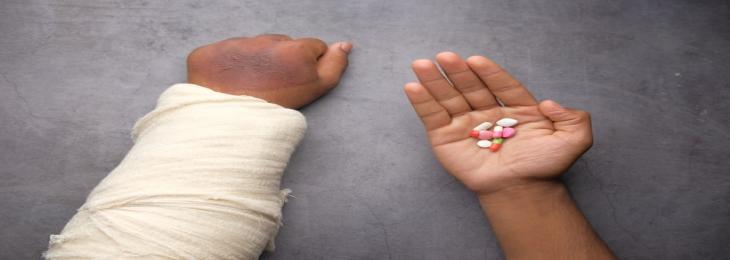Sep, 2022 - By WMR

Hip fracture is a serious health problem that affects people all over the world and has huge economic repercussions. According to research, there may be long-term dangers associated with vegetarian diets. The research also identified potential solutions for reducing those risks.
According to a 2021 YouGov survey, the UK's vegetarian population is estimated to be between 5-7%. Vegetarian diets have grown in popularity in recent years. Despite of prior research demonstrating that a vegetarian diet can lower the dangers of certain chronic disorders, it is generally seen as a better dietary option. There is a widespread demand for decreasing the consumption of animal products in an effort to mitigate climate change. It is alarming that vegetarian diets frequently have lower nutritional intakes than those associated with healthy bones and muscles. In general, certain nutrients, such as protein, calcium, and other micronutrients, are more prevalent in animal products such as meat compare to plants. Low consumption of these nutrients can increase your risk of hip fracture by lowering your bone density and muscle mineral density.
This research addressed potential issues about vegetarian diet-eating women's risk of hip fracture. It does not, however, advise people to stop eating vegetarianism. Like with any diet, it's crucial to understand one's unique situation and the nutrients required for healthier life. James Webster, a doctorate researcher from Leeds' School of Food Science and Nutrition, is the study's principal investigator. This year's 11th of August this have seen the publication of this case report in the journal BMC Medicine.
The study's researchers discovered that vegetarians' Body Mass Index was a little bit lower than expected than the people who eat meat. Those with lower BMIs may be underweight and have thinner bones and muscles and an increased risk of osteoporotic fracture. If low BMI accounts for the reported heightened risk amongst vegetarianism,to prove this, more investigation is necessary. Furthermore, this study only represents a small portion of the larger picture of food and strong bones and muscles in later life.

We will be happy to help you find what you need. Please call us or write to us: